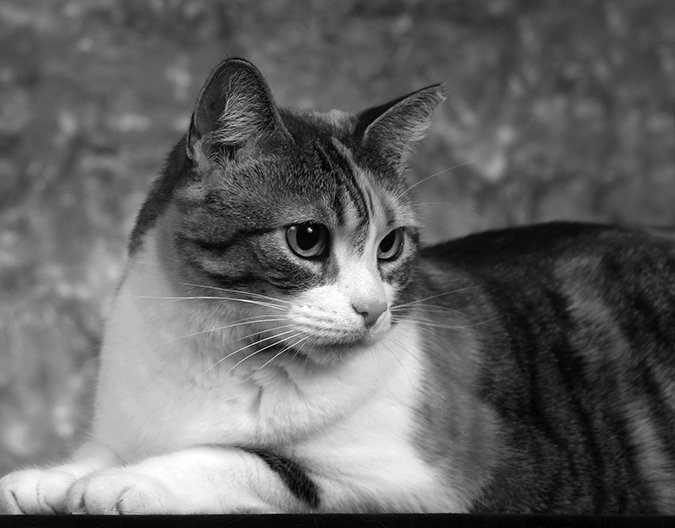Q:Max is an overweight domestic shorthaired cat who is 10 years of age. About a year ago, he started to leave feces in non-litter box areas. While he still used the litter box, he would also leave feces right next to the box and also in an area by the front door. Any idea what started this behavior?

A: Thanks for getting in touch, and I am sorry to hear that Max has been having this problem, which is, unfortunately, not uncommon. Inappropriate elimination can be caused by a number of factors, so perhaps a brief discussion of these would be helpful.
The first thing to rule out is a medical condition. Taking your cat to a veterinarian is an important first step toward figuring out what’s going on. Whether a medical issue is causing an abnormality in the frequency, consistency and/or urgency of defecation is a vital piece of information.
In some cases, conditions that cause discomfort while defecating, such as constipation or arthritis (which may cause pain when a kitty postures to defecate), can cause a cat to develop a negative association between the litter box where he normally defecates and the discomfort experienced during defecation, and this may drive him to avoid the litter box in an effort to avoid the discomfort.
Arthritic cats may also have a problem stepping over high-walled litter boxes that were not a problem when they were younger and not experiencing pain from arthritis. Your cat’s veterinarian will likely ask you questions about the consistency of your kitty’s stool, the frequency of defecation and whether you have observed any blood in the stool. Testing your cat’s stool for parasites such as intestinal worms may also be a good idea, and the veterinarian may ask you to bring a stool sample to facilitate this.
Once a medical condition has been ruled out, other behavioral causes can be investigated. Cats can develop aversions to their litter boxes for a variety of reasons, including owners not keeping the litter boxes clean enough to a cat’s liking, a dislike of a particular type of litter or litter box, competition for litter boxes by other cats in the household and the location of the litter box, which may be too exposed (perhaps making a cat vulnerable to attack by another animal in the house during or after defecation) not exposed enough, too cold/hot, or too dark and dingy.
In contrast to the development of aversions to litter boxes, cats may also develop inappropriate preferences for eliminating on certain types of surfaces (hard versus soft surfaces, for example). Some cats prefer to eliminate on soft surfaces, while others may prefer hard/smooth surfaces. Determining these substrate preferences can be challenging, but once this is done, this preference can be used to gradually retrain a cat to eliminate appropriately in his litter box.
Another potential cause of inappropriate defecation in elderly cats is cognitive dysfunction, similar to senility seen in elderly people. Cats with this condition may demonstrate a number of other behavioral changes, including increased vocalization, changes in sleeping patterns, and an increased or decreased desire for attention.
If no medical problem has been identified, the next step is to figure out if one of these other factors may be contributing to your kitty’s inappropriate defecation. If necessary, you can consult a veterinary behaviorist to find the root of the problem and to develop strategies to retrain your boy.
In most cases, this issue can be corrected with patience and appropriate consultation. I know that this must be very frustrating, but hang in there and seek the right help. I know that you and Max can solve this problem.
For more information on how to address inappropriate elimination in cats, visit the Cornell Feline Health Center’s website at: http://www.vet.cornell.edu/FHC/health_information/brochure_housesoiling.cfm
Best of luck, and please let us know how things are going when you can.
—Sincerely, Elizabeth



